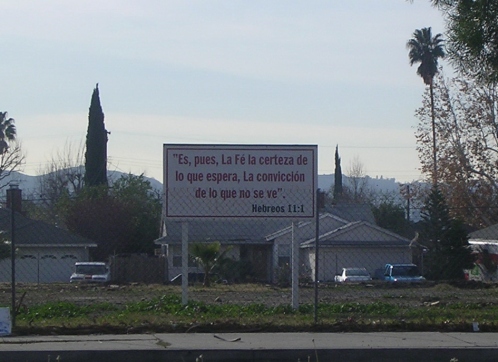“In the work ahead, we must be guided by the philosophy that made our nation great. As Americans, we believe in the power of individuals to determine their destiny and shape the course of history. We believe that the most reliable guide for our country is the collective wisdom of ordinary citizens. And so in all we do, we must trust in the ability of free peoples to make wise decisions, and empower them to improve their lives for their futures.” President Bush, State of the Union, January 28, 2008.
When President Bush made this statement last week, he was affirming the democratic ideal that is the foundation of our country. It’s something we are supposed to applaud and certainly not question. But it’s not my ideal, and I was almost surprised by how strong a reaction I had against it when I heard the speech. Although the President expressed some truths, the heart of the problem is in the 3rd sentence quoted above. My “most reliable guide” isn’t people at all; it’s God. Changing “In God We Trust” to “In People We Trust” turns the foundation of our country into idolatry. It is the idolatry of secular humanism. Our country’s ideology elevates people to the place that only God should occupy, and we promote this ideology worldwide.
“Trust in the LORD with all your heart and lean not on your own understanding.” Proverbs 3:5
I think many would say that I am misinterpreting the President’s statements. Many Christians would say that if those ordinary citizens are guided by Biblical principles in their decision-making, along with some God-given common sense, then their collective wisdom is in fact a reliable guide and is not leaning on their own understanding. This model of Christian decision-making sounds reasonable; the problem is that it’s not Biblical. Let’s look at Joshua Chapter 9 to see an illustration of how this method of decision-making differs from what God intended.
At the end of Chapter 8, the Israelites heard the entire Law of Moses read to them (vv. 34-35), so all those Biblical principles and commands were very fresh in their minds. There was one command in particular that would soon be very relevant: They were not allowed to make a treaty with any peoples living nearby in the land God was giving them. Then in Chapter 9, the Gibeonites show up and ask to make a treaty with the Israelites. They say they come from a distant country. They look like they come from a distant country. There does not appear to be any Biblical or logical reason not to make a treaty with the Gibeonites, and so they make a treaty. A few days later, the Israelites find out that the Gibeonites tricked them and actually live very close to them. With all the inside information that the reader of Chapter 9 is given, it is easy to fault the Israelites’ common sense and say that they should have investigated more carefully before going ahead with the treaty. But the Bible does not fault them for their faulty intelligence. Instead, it identifies the problem in verse 14: “The men of Israel…did not inquire of the LORD.” They didn’t ask God before making their decision.
God never intended for people to take the gifts of His Word and the ability to think logically as a license to make decisions apart from Him. Even when a decision seems clear, we are to “inquire of the LORD.” Because we are used to living our lives without God, at first this may seem impractical, burdensome, or even humiliating. “Why did God give me a brain if I’m supposed to ask Him about everything? Should I pray about whether to wear a blue shirt or a green shirt today?” This is the wrong perspective. If we are to “pray continually,” then inquiring of the LORD is simply the everyday working out of our being in constant communion with Him. Constantly talking to our Most Reliable Guide leads us into a more full understanding of His purposes in our lives and in the world around us, and ultimately it transforms us.
“Is it because there is no God in Israel that you are going off to consult Baal-Zebub, the god of Ekron?” 2 Kings 1:3
In 2 Kings it was Baal-Zebub; today it may be the god of individualism or secular humanism or something else. Whatever god it may be, it is arrogant to place anything above consulting the Most High God. It is idolatry (1 Samuel 15:23). Making decisions on our own rejects God’s purposes and replaces it with our own purposes. It replaces the Kingdom of God with the Kingdom of Man. This is true both as individuals and as a nation, and it will indeed “determine their destiny and shape the course of history” as President Bush stated.
